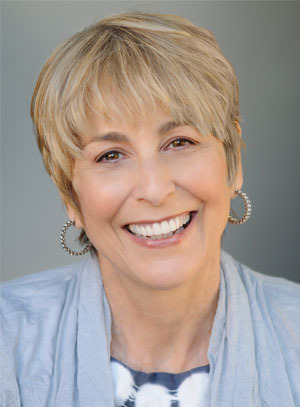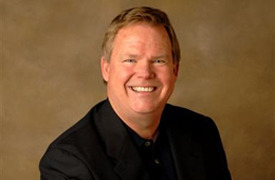Helene Lerner's Blog, page 119
March 6, 2014
Make Your Goals Achievable Starting Today

Most of us have seen company mission statements when we have researched employers and industries. Typically corporate mission statements encompass the values of a company; their goals and their future plans for growth.
Not many of us have seen or created a “Personal Mission Statement”, however--but we all should. How helpful to have a short paragraph to guide us in our careers; keep us moving forward and on track. A mission statement not only states your goals, but also lays out the steps needed to reach those goals.
A personal mission statement should be brief, about three to five sentences. Tack it up on your computer; save it on your iphone, stick on your refrigerator. Your mission statement is meant to guide you in your day-to-day activities and help you stay on track to meet your short-term and long-term goals. It is as useful for job seekers as it is for those who are happily employed. Some tips to keep in mind when creating one:
Make sure your mission statement is personal; it should sound like “you” and be authentic.
Include skills, character traits and knowledge that you consider important and would want a potential employer or client to know about you.
Describe what you want to focus on and who/what you want to become in this stage of your career.
Sample Mission Statement
“To have a successful career at a software engineering company which will utilize my technology skills, leadership abilities and provide a platform for my continued career growth. I will do this by continuing my education in technology; attending conferences in my field to network; and by obtaining a research position at my university within the next year.”
A personal mission statement is not meant to be stagnant. It is meant to change and grow as you do. Once goals are met and milestones are reached, your mission statement should be revised to included new goals. Your statement should help propel you forward in your job search or career.
To see some additional samples and templates for personal mission statements, check out www.quintcareers.com or www.timethoughts.com.
—Pamela Weinberg, Career Coach
March 5, 2014
Dress to Impress--What to Wear to a Job Interview

When preparing for an interview, remember, different Industries have different rules--however there is a “holy grail” that works for most.
Understand that most workplaces are made up of people from diverse cultural, political, generational, ethnic, and socioeconomic backgrounds. What may be normal and acceptable for you can possibly be perceived as offensive and distasteful to another. The point is to keep this in mind when you get dressed each day and err on the side of classic, middle-of-the-road clothing if you are NOT sure if it’s too much for the office. In the workplace, you’re trying to get people to notice your professional skills, and so you do not want your appearance to be an unwanted or unintentional distraction. You want to be perceived as a stylish professional, and you want others to focus on your capabilities and talents.
Most offices have an official dress code policy. Feel free to ask during your interview exactly what theirs is or if they can point you to the dress code policy so that you can read it and become familiar with what is expected of you in the workplace. That will impress the boss, guaranteed!
Some “Do’s” when getting dressed for an interview:
Do wear a suit (pant or skirt) or classic dress (like a wrap dress or sheath w blazer) that is well fitting/tailored. Depending on your industry you may be able to go more fashion forward with patterns, textures or colors but the fool-proof rule works for everyone so if you want to play it safe go with a solid, neutral color like navy blue, black, grey or chocolate.
[image error]
Do wear jewelry that is simple and timeless.
Do wear your hair in a clean, neat style.
Do wear clothing that makes you feel confident.
Do wear stylish professional looking shoes that coordinate well with your suit and are clean and well kept.
[image error]
Do wear a blouse that fits nicely under your suit and that is pressed and not too revealing.
Do wear deodorant and be well-groomed.
Do wear natural, light make-up and short, colored nails.
Do conceal tattoos and body piercings.
Do carry a small, professional-looking handbag.
Do wear hosiery; a skin tone color is fine (especially when the weather is cold).
Some “Don’ts” when getting dressed for an interview:
Do not forgo the suit! You are trying to sell yourself, so a suit is in order.
Do not wear a suit that is too overtly trendy; classic details are a MUST.
[image error]
Do not wear overly flashy or trendy jewelry.
Do not wear extreme high heels, open-toed shoes, sandals, flip flops, or tennis shoes.
Do not wear heavily scented grooming products or perfumes.
Do not wear anything that is too short, tight-fitting, sheer, low-cut, provocative, or strapless.
Do not reveal spaghetti straps or expose bra and underwear lines.
Do not wear decorated, brightly-colored, or fishnet stockings.
Do not display tattoos or body piercings.
Do not wear an overly trendy or extreme hair style; timelessly chic.
Do not carry a backpack, or every-day bag. Carry your best handbag/portfolio.
[image error]
Do not wear heavy make-up or overly long, brightly-colored nails.
Pamela Watson, celebrity stylist who currently works as the trend expert for Builders of Style, where she prepares A-list clients for red carpet events, music videos, concerts and award shows.
March 4, 2014
What You Really Need to do to Get Ahead

I recently attended a screening of an inspirational documentary entitled “Geraldine Ferraro: Paving the Way”. A refresher on Geraldine Ferraro: she earned her place in history as the first woman vice- presidential candidate on a national party ticket as Walter Mondale’s running mate in the 1984 election.
Geraldine Ferraro did what no other woman had done before, and she did it her way. One of the most notable qualities about Ms. Ferraro was that she knew and lived her “brand” in an absolutely authentic way. She never tried to be anything except a hard-working, sassy girl from Queens raised by a single-mother who worked beading wedding gowns to put her through Catholic school, college and law school.
Despite the pressures of being a woman in Congress (one of a handful at that time) Ms. Ferraro was a model of balance. Her family was her priority—even if that meant flying back and forth from DC to Queens twice in four days to be home for family dinner. She was a role model of the modern career woman.
History books show Ms. Ferraro as a trailblazer and role model to women. There was not a dry eye in the convention hall watching Ms. Ferraro being nominated at the Democratic National Convention in 1984.
So what are some of the lessons that all women in the workplace can learn from Geraldine Ferraro?
Be prepared. Nobody worked harder than Ms. Ferraro did to understand the issues of her constituents and to find solutions. She was well versed in local politics, and when it was her turn to be on the national stage she worked around the clock to ensure that she mastered the important issues facing the country.
Develop a strong peer group. She had many friends “across the aisle” in congress. She had wonderful relationships with the other female congresswomen, both democrats and republicans. She was able to capitalize on these relationships to get business done in Washington.
Believe in yourself. No matter how much adversity crossed her path or how often she was derailed, she continued to fight for the causes that she believed in. When she was diagnosed with multiple myeloma she took her fight to congress and was able to pass a bill to raise funds and awareness for blood cancer research.
—Pamela Weinberg, Career Coach
March 3, 2014
What You Need to do to Stop Worrying

Worrying keeps you stuck. Do you find yourself projecting negative outcomes? Do you obsess over the future?
If the answer is yes to anyone of these questions, you are probably spinning your wheels more than you'd like, and depleting your energy on things that you have no control over.
Here are some insights to get help you let go of worrying.
Worrying has no positive effect. Reflect on a time when a worry attack came on. What was happening? Who was the central focus? What were you telling yourself? After some time had elapsed, did what you fear, happen? Did your worrying about it make a difference? The answer most likely is No.
Worry distorts the truth. On the verge of hysteria, which worrying can often lead to, what you perceive as true, probably isn't. You are looking at a situation in a distorted way, and your judgement is clouded.
Worry can be a cover up. Worrying keeps us away from dealing with the real issues. Is there something in your life that you need to attend to but aren't? Why is this? Are you afraid of losing something you have, or not getting something you want?
Worrying saps our energy. Here's an analogy. Let's say your body is made up of sugar cubes. Each cube represents a unit of energy. When you worry, a large number of cubes are used up that could have been put to better use.
When you spot yourself worrying, nip it in the bud. Just ask yourself these questions:
Is what I'm "telling" myself true?
Am I seeing the situation clearly?
What am I avoiding by getting myself churned up?
Then turn your attention to something more productive.
February 28, 2014
Career Coach: Welcome to March

Hi, I am Pamela Weinberg, a Founding Partner of Mind Your Own Business Moms, a business dedicated to helping women in various stages of career development. In addition to my work at MYOBmoms, I maintain a career coaching practice working with clients to help with job searches, career advancement, social media and more. I am also an adjunct instructor at New York University’s School of Continuing and Professional Studies in the field of Career Management, offering a variety of seminars and workshops there.
I speak frequently both to students and alumni at universities such as NYU and Columbia, as well as to corporate executives on “Personal Branding,” which is a passion of mine. I run workshops, seminars and lead webinars on topics such as “Personal Branding for Job Search” and “Redefining your Identity after Raising a Family”.
Through my work at the Wasserman Center for Career Development at New York University and the Office of Career Management at New York University’s School of Continuing and Professional Studies, I have gained valuable experience counseling a diverse population from undergraduate students to career changers. At both institutions, I work with clients on résumé development, interview techniques, networking tips and job search strategies.
I am looking forward to being the featured career coach at WomenWorking for March.
—Pamela Weinberg, Career Coach
Stay True to Yourself and Succeed

For much of my life, I would have described strong women as akin to live-action superfigures like Rosa Parks, Gloria Steinem, and those who prevailed under the most adverse conditions. Climbing Mount Everest in bone-chilling temperatures, enrolling as the first female cadet at West Point, or raising four children as a single mother in Watts all qualified.
Under this definition, I wasn’t even in the running for strong womanhood.
But an extraordinary thing happened upon turning forty: I stopped measuring strength in black-and-white absolutes. Until then, one was either strong or a wimp, brilliant or stupid, obsessively driven or lazy. However, life became much too full for such a limited perspective.
I started measuring myself and others by a more humane standard. And the next time I took stock of myself, instead of the usual litany of “should haves” and “could haves,” I was finally able to take pride in my own accomplishments. This realization gave me the confidence to take the tremendous life risk of acting exactly like myself.
And that’s what being a strong woman is really all about.
Peggy Klaus, Communications and Leadership Coach,
President, Klaus & Associates
Excerpted from What Makes a Strong Woman by Helene Lerner. Andrews McMeel Publishing.
February 27, 2014
How to be Passionate About What You Do

It’s no secret that employee engagement has been on a downward trend for the last several years. There is however, a bit of good news--you can begin to improve your work happiness beginning today and here are three tips to get started:
Mastery: In my last blog post, we talked about developing your skills and I suggested that you think like the CEO of your company. When you see a CEO, he or she arrived at that position because they grew into it. If you want to be happier at work, focus on your growth and development--think in terms of becoming a master at your work. If you stay at the level of expertise you are at now, your passion will begin to dwindle. However, when you craft a plan to learn, grow and develop yourself and you take consistent action on your plan, you will find that your passion for what you do will increase.
Invest in relationships: It’s been said that people don’t quit their company, they quit their boss. When it comes to strengthening and growing your relationships at work, start with your boss. Make a list today of how you can communicate better with him or her and how you can deliver more value to this important relationship. Then, think of how you can become more visible to management above your boss. How can you get on their radar and connect with them? Is it possible that someone higher up would be happy to be your mentor or sponsor? Next, think of your team members; what can you do to be a better communicator and team member?
Know where you want to go: The most passionate employees are those who have a vision for where they want to be in the near future and beyond. How much thought have you given to where you want to go in your career and how you plan to get there? Few managers help their team members craft what is commonly called an Individual Development Plan. Instead of wishing your boss would help you with that, think like a CEO and write you own. It will be your guide to keep you on track on to motivate you when things aren’t going as well as you would like.
If you commit to mastering what you do, invest in your relationships at work and if you know where you want to go, you will be able to say, “I love my work.”
Alan Allard, Executive Coach and Speaker
www.alanallard.com
February 26, 2014
Want to Get the Edge at Work? Build New Skills

My wife teaches piano and I am often amazed at what her younger students have to say about themselves--and life in general. Yesterday, a nine-year-old was telling her that his school began at 7:20 a.m. She was sure it didn’t begin that early and after a few questions from her to clarify things, this young man proudly declared, “I understand now, I start learning a little after 8:00 a.m. when my school starts!”
Of course, we know what he meant. At the same time, I hope he realizes somewhere along the way that learning doesn’t start and stop at any certain time. I hope he comes to understand that true professionals are always in school. What about you? Are you in charge of your own learning and development, or have you left that mainly to your company? If your boss asked you to document what you have learned over the past twelve months, and how you have applied it, would your answer impress her?
It is easier than ever to continue your “education” and it is the only way for you to stand out in the crowd. Far too many employees do little or nothing to develop their knowledge and skill set beyond what their company offers. That kind of thinking, however, puts your job and career in jeopardy. You need to think like a “free agent” who isn’t dependent upon his or her company for their ongoing development. Here’s why:
All jobs are temporary in today’s marketplace and job security is nothing but an illusion—a compelling one, but still an illusion. The only security you have is in what you can do for your boss and your company. But don’t make the mistake of thinking it’s about what you did last month or last year—it’s not. When your boss is deciding whom to promote or to keep, they are looking into the near future and asking, “What can they do for me tomorrow and beyond?”
What new skills, certifications or knowledge do you need to master to be indispensable to your boss? Begin today to think like the CEO of your company. Do you know what your company’s strategy is? Do you know what your company’s biggest challenges are? Do you know what opportunities your boss wants to capitalize on next? Most employees don’t. If you don’t, that’s not a problem. You can learn all these things. Just remember, school is never out for the true professional.
Alan Allard, Executive Coach and Speaker
www.alanallard.com
Up Front and Personal with Alanis Morissette

I was thrilled to interview Alanis recently. I was impressed by her knowledge of what's needed in the world and the power we all have to bring it about.
Helene: Who early on saw something in you that you hadn’t seen in yourself?
Alanis: The irony of having two teachers as parents is that I didn’t really have any sense of my intelligence. I would watch people and process quietly. But it was only as I got older that people like my grandmother, and different authors--my mentors through the years--started mirroring my talents, intelligence, and capacity for empathy. All of these subtle aspects hadn’t been reflected.
Helene: So what was your grandmother like?
Alanis: Well both of my grandmothers were very intense women. My paternal grandmother was highly sensitive and would pick up on every subtlety. I used to see magazines with my face on them hidden underneath books in her room. She was quiet and powerful. She passed away when I was on tour for Jagged Little Pill. And then my mom’s mom, who passed away a few years ago. She had incredible fortitude. My mom’s family, including my grandmother, escaped from Hungary during the revolution in 1956. They have this survival, powerful, soldier on through difficulty characteristic, that I have adopted.
Helene: So what was it like having a twin brother?
Alanis: There was a lot of humor, a lot of us finishing each other’s sentences, a lot of telepathy.
Helene: Still today? It’s the same?
Alanis: Totally.
Helene: What’s his name?
Alanis: His name is Wade.
Helene: And do you see him often?
Alanis: Yes--we’re building a home right near him.
Helene: He’s a musician as well, right?
Alanis: He is, he’s a kirtan musician. He’s actually recording a children’s album. He’s also a yoga teacher and trainer. He’s incredible.
Helene: Can you talk about the power of overcoming obstacles?
Alanis: Yes, tough circumstances catapult us into this higher level of resilience.
Helene: Exactly. And it’s never fun when it happens. How would you answer the question, what makes a strong woman?
Alanis: I would say the capacity, willingness and courage to feel all feelings, all the way through. I think the idea of us holding the bucket for each other to the point where we can process some of the anger and all of the emotions that we’re often told not to feel--I feel like that moves us to our next place.
Helene: After high school, you were very courageous. How were you able to go after your career?
Alanis: Anything that I was terrified of, I had been trained from a young age, to move into it.
Helene: What would you tell your younger self that you know now?
Alanis: I would dive into the conversation about work addiction and how it affects our relationships and our bodies--that it’s an addiction like any other. Unfortunately it’s just a respectable addiction according to our culture. You tell someone you worked till 4:00 in the morning and they pat you on the back, rather than asking, ‘Are you okay?’ So I would take away the normalization of overwork for that young person. In my family and in the culture I grew up in, the message was that overworking was a good idea.
Helene: I deal with career women all over the world—we all need to step up but it’s not about stepping up, like you said, in an insane way.
Alanis: It’s not stepping up in order to adhere to the patriarchal or masculine agenda, it’s stepping up to our essential, authentic selves.
Helene: You’re so versatile, a singer, producer, actor--what are the things that you haven’t done that you really want to do?
Alanis: I’m writing a book right now, becoming an author. Hopefully, finishing by June. After that, I’m starting a record--I have about seven songs in my back pocket ready to go. As far as other goals, definitely blossoming my family god willing, over the next few years. And I think achieving some kind of structure that includes fun, of course, leaving a little room for flexibility.
Helene: We take ourselves so seriously--what fun things would you like to do more of?
Alanis: More dancing, more sun, more nature. And more silence, which is a tough thing to achieve with a three-year-old.
Helene: Can you get away Alanis? You know every once in a while just take a day for yourself?
Alanis: Yep, I can escape to a hotel, or even just escape with a blanket to the beach. Do I do that as often as I would like? Not yet, but I’m on my way
Helene: And how has you son changed your life?
Alanis: Many, many ways. I think one of the most healing experiences as his parent is bringing empathy to all his feeling so that he doesn’t have conflicted relationships with frustration, anger, joy, bliss--you know, whatever is moving through him at the moment. When I leave space for that, regardless of the anxiety it may bring up in myself and my husband, I notice that much of the time he moves through it.
Helene: What did your eating disorder teach you and how were you able to deal with it?
Alanis: To be honest, the recovery from the eating disorder has been an ongoing one, and the most current breakthrough for me has been around dancing again. It’s lifted my depression, I’m back in my body.
Helene: Favorite movie?
Alanis: Bridesmaids.
Helene: Favorite singer?
Alanis: Carole King and Etta James together like if they had a baby.
February 25, 2014
Sarah Jakes: A Woman with a Mission
Recently, we interviewed Sarah Jakes, daughter of the renowned pastor T.D. Jakes. We were impressed by her authenticity and warmth. She revealed some of her "dark nights of the soul." As a teenage mother, Sarah was challenged by tough times. In her book, Lost and Found: Finding Hope in the Detours of Life being released shortly, she describes the steps of her transformation, and how her faith empowered her to be the woman she is today.
Be inspired by this wonderful woman.
Video Editor--Alexa Payesko
Helene Lerner's Blog
- Helene Lerner's profile
- 9 followers



